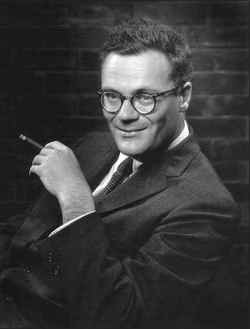 To Robert Traill Spence Lowell Jr.
To Robert Traill Spence Lowell Jr.
Via Santo Stefano Rotondo, 6
Rome. November 27, 1948
Your previous letter, which I have not answered, set me thinking on the meaning of “agreeing to differ”. I don’t like the stock phrase: it is ambiguous. We must all differ more or less in everything because we are complex unique compounds of different parents and different circumstances: even brothers or twins are wholly individual and irreproducible. But there is also a sense in which “differing” is a disappointment, not a sign of integration on both sides. It suggests that we hoped to agree and ought to have done so, only one or both of us was perverse or blind; and we have to put up with these faults in one another.
That which I call the “Spirit” is potentially omniscient, being the pure faculty of apprehension; and in the exercise of this faculty (which is an animal activity like any other, and not emotionally indifferent) we may take a certain pride; but love of the object so discerned or the mental process so executed is a personal matter. The indulgence may disturb the harmony of your life; it may be, for you, a waste of energy or a vice; so that even the mere cognisance of its possibility may not be worth while for you personally, although “Spirit” in you would a priori wish to be omniscient. But spirit incarnate cannot be omniscient nor absolutely impartial; and therefore there are things (as Aristotle says) that it is better not to know. I think Aristotle would have been speculatively wiser if he had said “better not to know for a particular natural creature”; but he was wise only as a moralist.
From The Letters of George Santayana: Book Eight, 1948-1952. Cambridge, MA: The MIT Press, 2008.
Location of manuscript: The Houghton Library, Harvard University, Cambridge MA
